To celebrate the Nobel laureate’s 160th birth anniversary, a chef has curated a menu inspired by the icon and his family’s culinary traditions
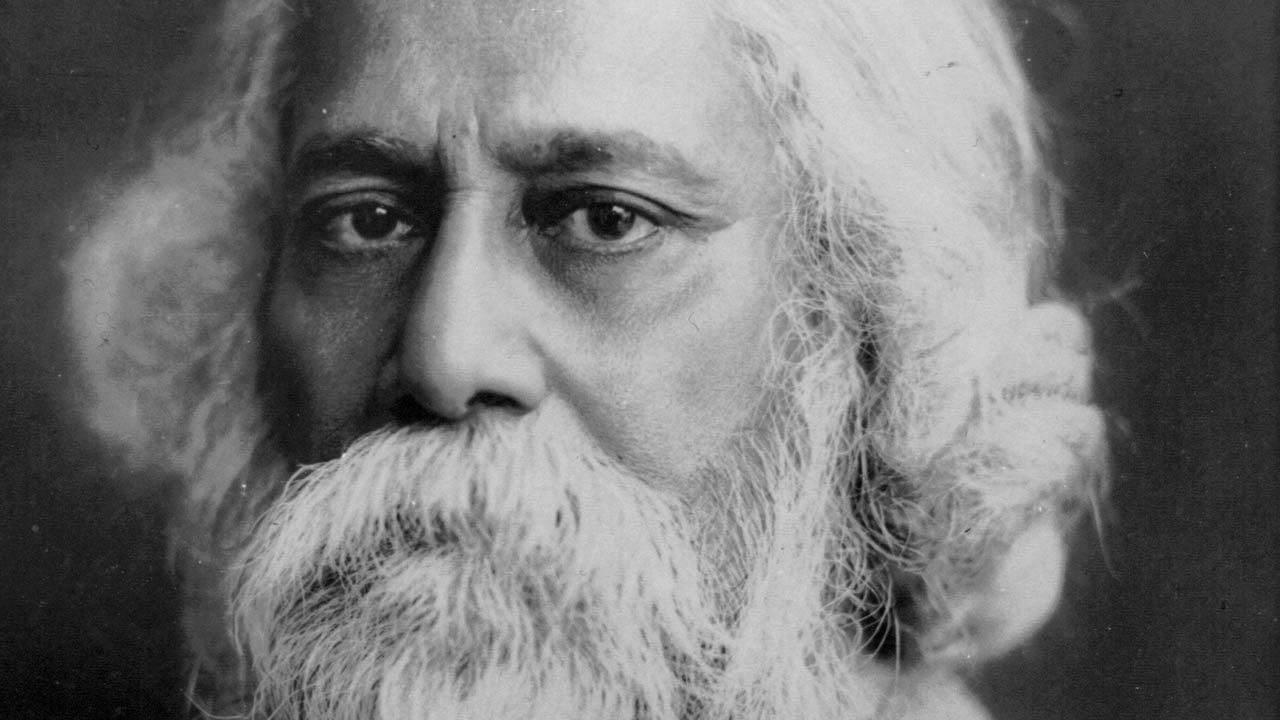
Rabindranath Tagore. Pic Courtesy/Wikimedia Commons
Legend has it that Nobel laureate Rabindranath Tagore’s birthday was first celebrated when he was 26 years old, thanks to his beloved niece Sarala Devi, who gathered bokul flowers to make him garlands, and presented him with a swish new set of dhuti-chador (dhoti and a wrap). Despite the late start, Pachishe Baishakh, or the 25th day of Baishakh month, when Tagore was born, has become no less than a festival in the lives of Bengalis.
ADVERTISEMENT
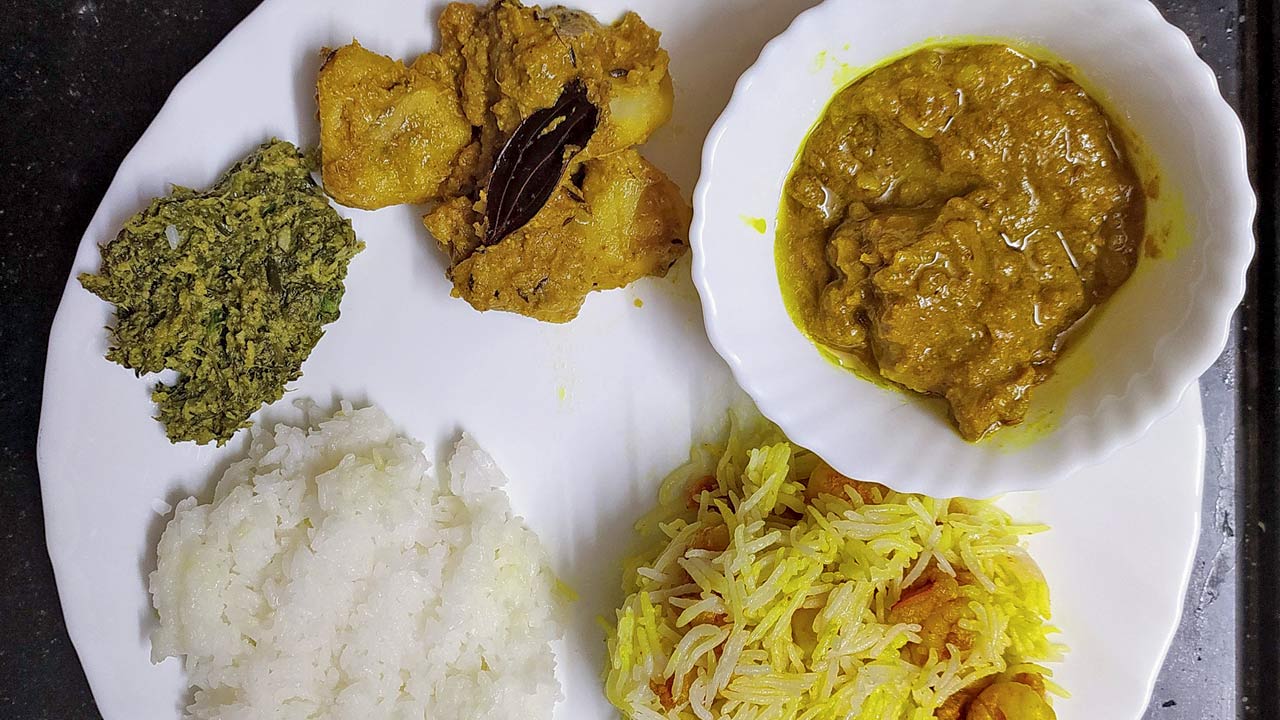
Palong Shak Bhate; Kachkolar Hingi; Pathar Bangla; Chingri Diye Bhat Bake; Rice
Since then, to celebrate Rabindrajayanti, programmes are held in every school, club, pada (neighbourhood) association, and even at home. No matter your age, you’re expected to chip in, be it with a poetry recital, a song, a dance performance or a play. And, like all Bengali celebrations, snacks are integral — a customary box of singaras (samosa’s eastern cousin), sandesh and vegetable chop — but for a change, food isn’t central to the day.
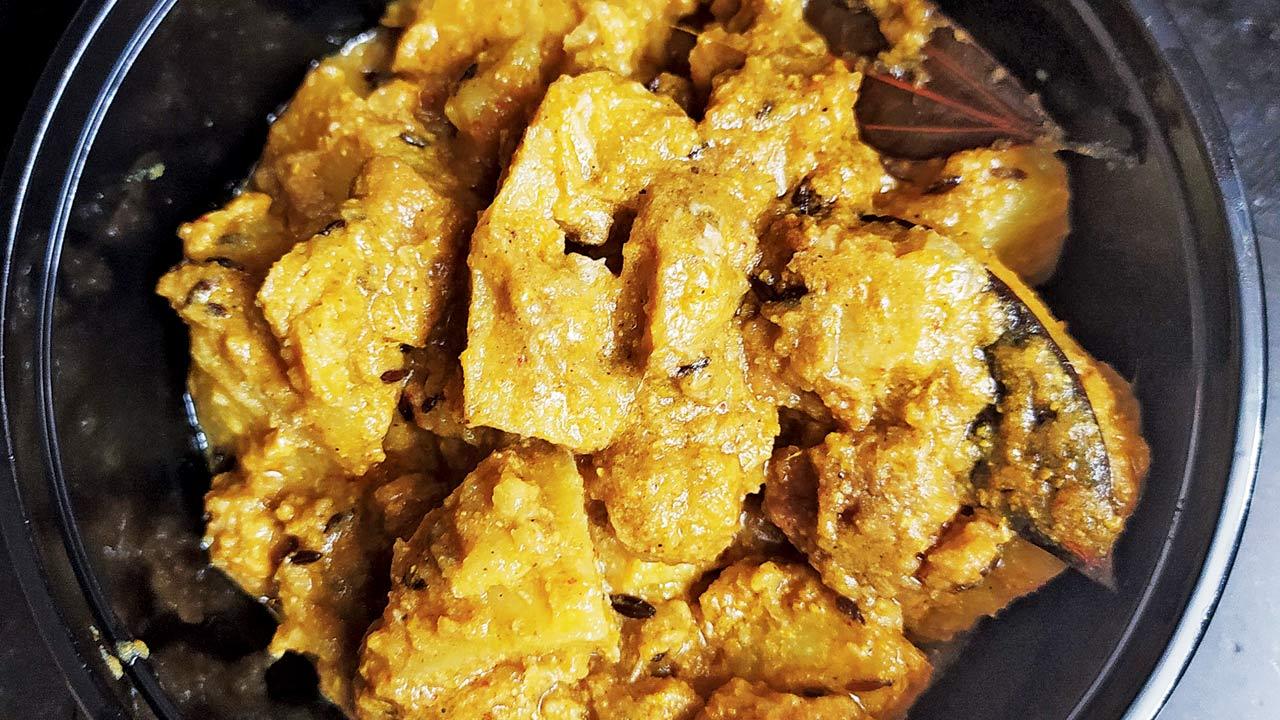
Kachkolar Hingi
So, imagine our surprise when, ahead of the literary icon’s 160th birth anniversary, we learnt about Malad-based home chef Madhumita Pyne’s Thakurbarir Ranna menu that celebrates the myriad cooking styles of the Tagore household. A Kolkata girl at heart, Pyne, who highlights lesser represented fare from Bengal through her venture Insomniac Cook, shares that the Rabindrajayanti menu is rooted in her love for food history. “Last year, I picked up the books Thakurbarir Ranna by Purnima Thakur and Amish o Niramish Ahar by Pragyasundari Devi; both lend an insight into the Tagores’ kitchen. From meat pies to bakes and biscuits, I realised so many of their dishes were so different from what you’d see in any other Bengali household, as they had cultural exchanges across the world, including with the British at home.”
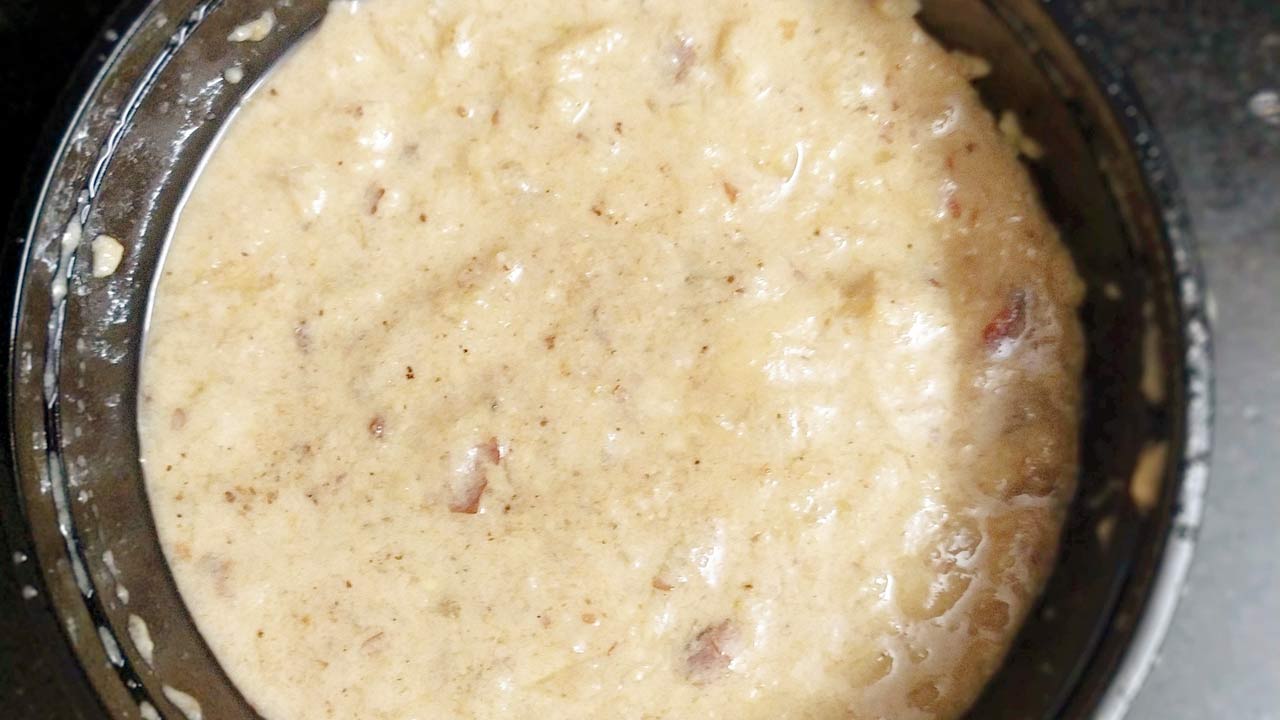
Peyajer Payesh
From the summer favourite jhaler jhol mixed veggies curry to the soul-warming murgir pishpash (one-pot chicken curry-rice), the menu boasts of eight fairly unique dishes from the Tagore family’s repertoire. “Tagore’s relationship with food was strange. He was known to not like the same food for a long time and would give into fad diets. For instance, he went through a diet where he ate raw eggs only, or the time he went through phases of eating boiled vegetables,” she reveals.
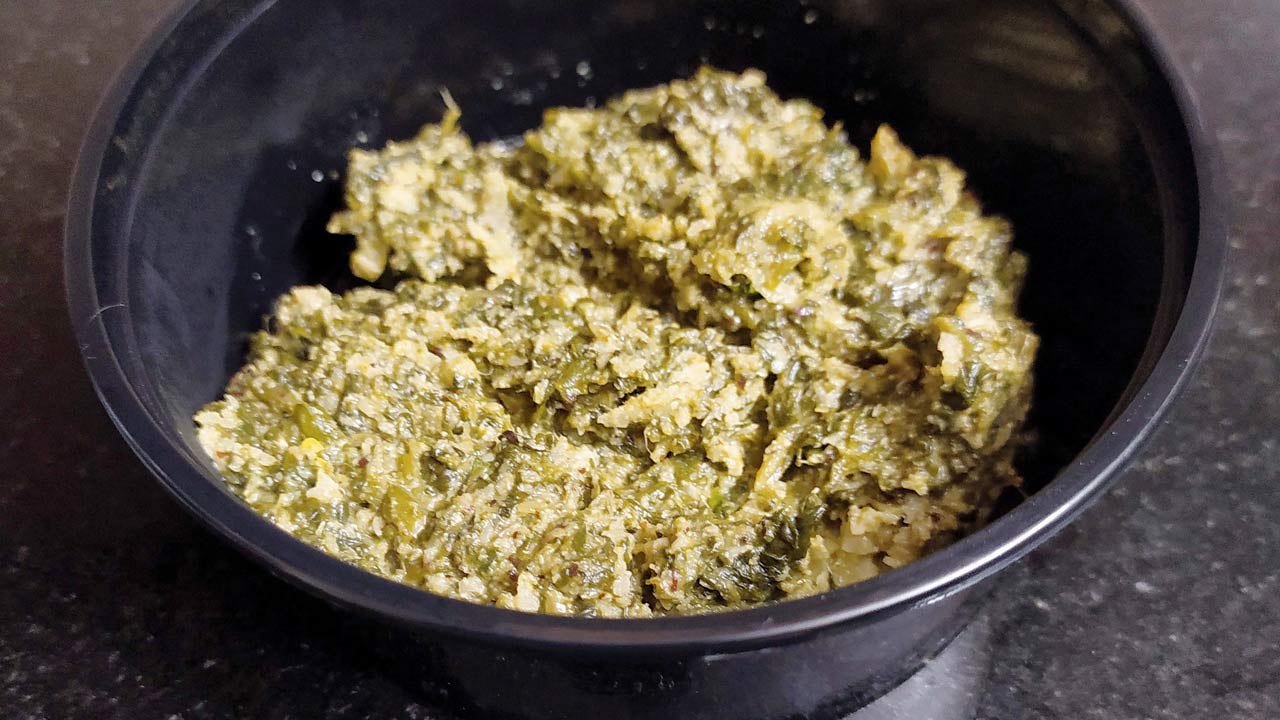
Palong Shak Bhate
Still reeling from the euphoria of connecting with friends and family for two virtual Rabindrajayanti programmes, the unmistakable aroma of mustard greets us when we open Pyne’s neatly packed, labelled containers. We pair palong shak bhate (Rs 250) — a mash of spinach and coconut tempered with mustard — with aromatic Gobindobhog rice. The heady notes of mustard hit the right spot. The kachkolar hingi (Rs 250), a hing-flavoured green banana sabzi, we find, is a simple celebration of the humble plantains; the boris or tiny lentil dumplings in it pack a nice crunch. The Tagore family’s European exposure comes alive in chingri diye bhat bake (Rs 450), a mildly spiced, layered casserole of rice, prawns, potato slices and onion rings that makes for a comforting affair. The pathar Bangla (Rs 450), a tender mutton curry, however, is a bit sweet-ish for our liking.
 Madhumita Pyne
Madhumita Pyne
The real surprise is the dessert — peyajer payesh (Rs 200), or onion kheer. Laden with fragrant dry fruits, the payesh is a lip-smacking way to wrap up the eclectic feast. We’re not sure what Tagore did post such luncheons, but we recommend a nice siesta.
Till: May 16 (order 48 hours in advance)
Call: 9892803506
 Subscribe today by clicking the link and stay updated with the latest news!" Click here!
Subscribe today by clicking the link and stay updated with the latest news!" Click here!








